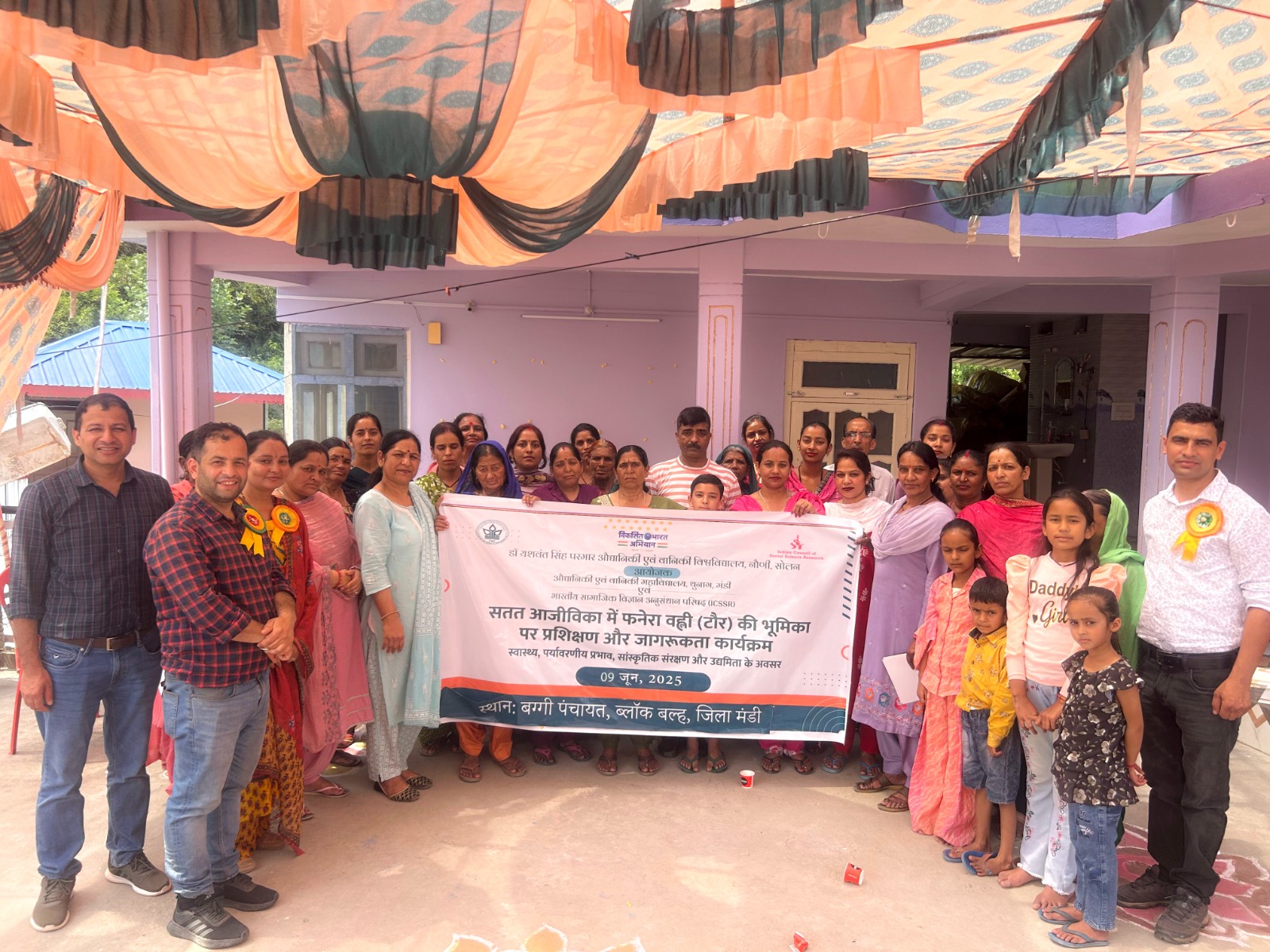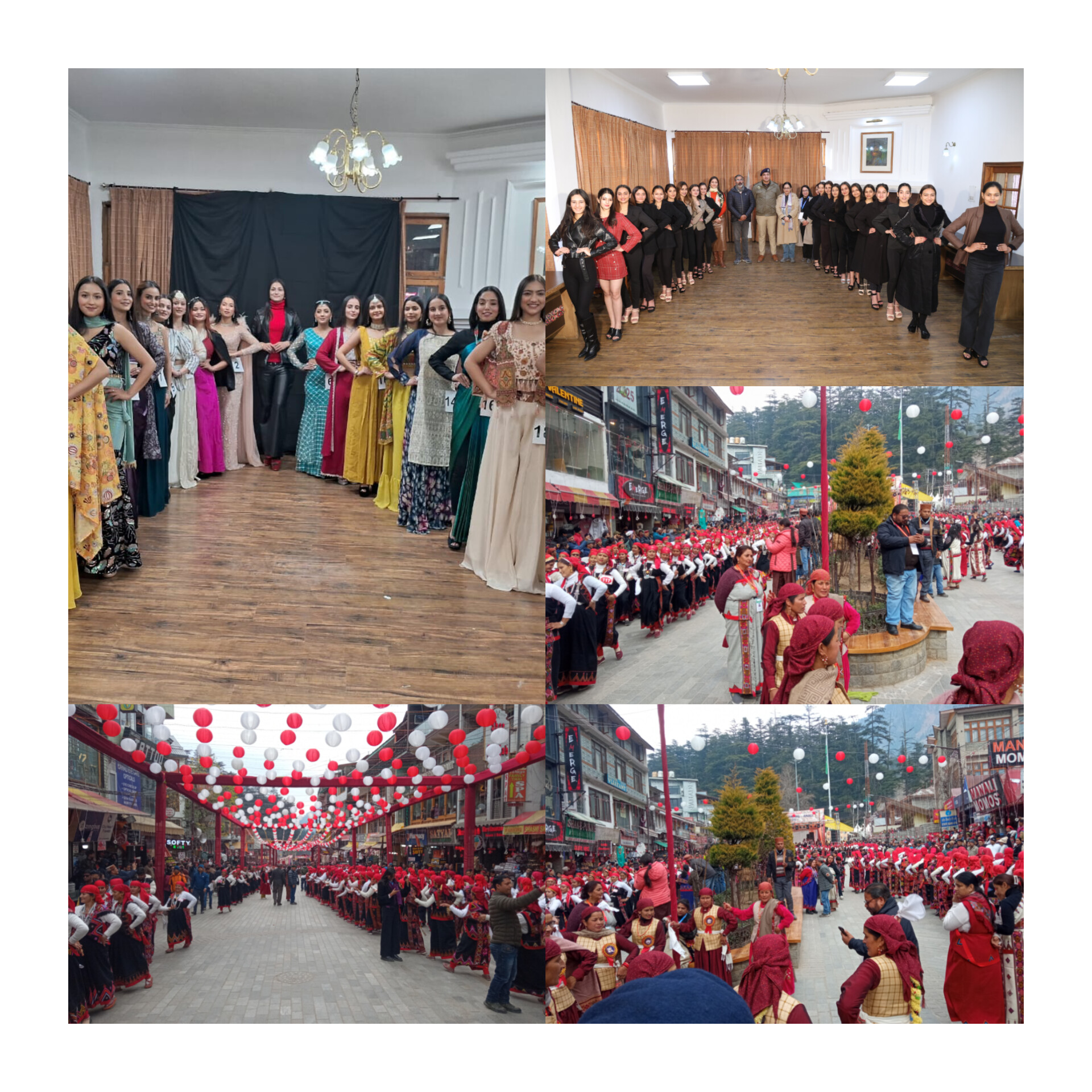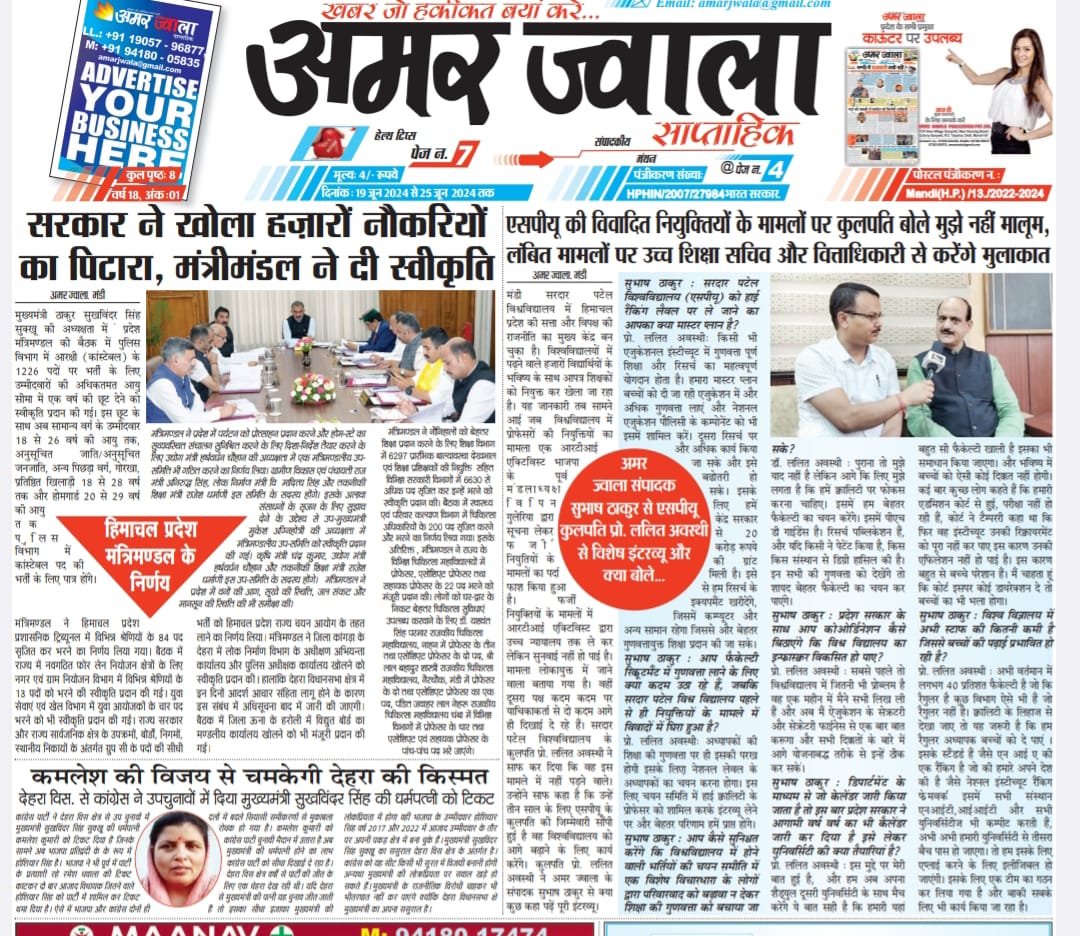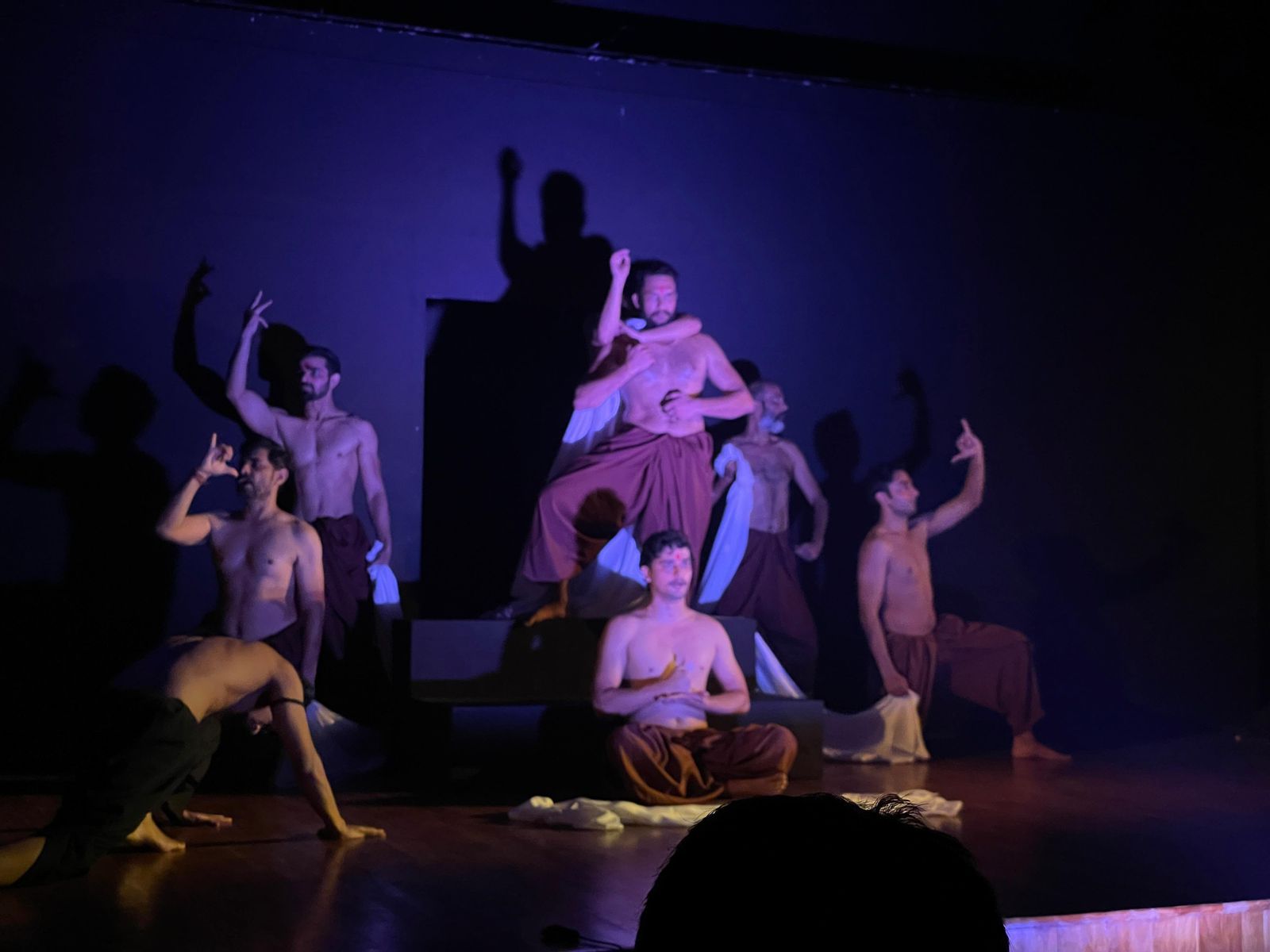Empowering Rural Communities: Training on Phanera vahlii Spurs Sustainable Livelihoods in Baggi Panchayat of Mandi.
Shimla:
In a remarkable step toward promoting sustainable development and rural empowerment, a one-day training and awareness programme titled “The Role of Phanera vahlii (Taur) in Sustainable Livelihoods: Health, Environment, Cultural Preservation, and Entrepreneurship” was successfully conducted today at Baggi Panchayat in Balh Block of Mandi district.
The event was a collaborative effort between the College of Horticulture and Forestry (COH&F), Thunag — under Dr. Y.S. Parmar University of Horticulture and Forestry, Nauni, Solan — and the Indian Council of Social Science Research (ICSSR). The initiative aimed to highlight the multifaceted importance of Phanera vahlii, locally known as Taur, a traditional and multipurpose plant integral to the region’s ecological and economic fabric.
Traditional Knowledge Meets Modern Entrepreneurship
The programme saw active participation from local farmers, members of women self-help groups, youth, and panchayat representatives. Through a series of interactive sessions, experts discussed the social, cultural, medicinal, and commercial significance of Taur — a plant known for its use in biodegradable leaf plates and its role in forest ecosystems.
A key feature of the day was a hands-on workshop on entrepreneurship and online marketing, where participants were trained to create and package eco-friendly products made from Taur. The trainers also introduced them to digital tools and e-commerce platforms, offering practical guidance on how to market their products online. This session was particularly well received, as it opened new economic possibilities for local artisans and self-help groups.
Expert-Led Technical Sessions
Renowned academicians and subject matter experts from COH&F Thunag — including Dr. Vijay Rana, Dr. Kishore Sharma, Dr. Kishore Kumar Thakur, and Dr. Sarita Devi — led technical discussions and demonstrations. They educated participants on sustainable harvesting, value addition, and conservation of Taur. The sessions emphasized the plant’s potential as a source of income while also promoting environmental sustainability.
Dr. Sarita Devi noted, “Phanera vahlii is more than just a plant — it is a symbol of the untapped potential within our traditional ecosystems. By combining this traditional wisdom with modern tools, we can build eco-conscious livelihoods that sustain both people and nature.”
A Step Towards Self-Reliance
The programme was lauded by Daya Ram, Panchayat Pradhan of Baggi, who appreciated the collaborative initiative. He remarked, “Such programmes are the need of the hour. They empower our communities to harness their natural resources wisely and move toward self-reliance. We hope to see more of such efforts in the near future.”
Participants expressed their gratitude and enthusiasm for the initiative, calling it an “eye-opener” that helped them realize the economic value embedded in their natural surroundings. Many attendees requested follow-up training and support to deepen their skills and explore further opportunities in sustainable entrepreneurship.
Conclusion
The event successfully bridged the gap between traditional ecological knowledge and modern entrepreneurial strategies, offering a model for inclusive rural development. As environmental challenges and economic needs continue to grow, such integrated approaches promise a path toward resilient, self-sufficient, and eco-friendly rural communities.
The success of this initiative marks a promising beginning for similar training programs aimed at preserving biodiversity while enhancing rural livelihoods — with Phanera vahlii standing tall as both a cultural heritage and an economic resource.




